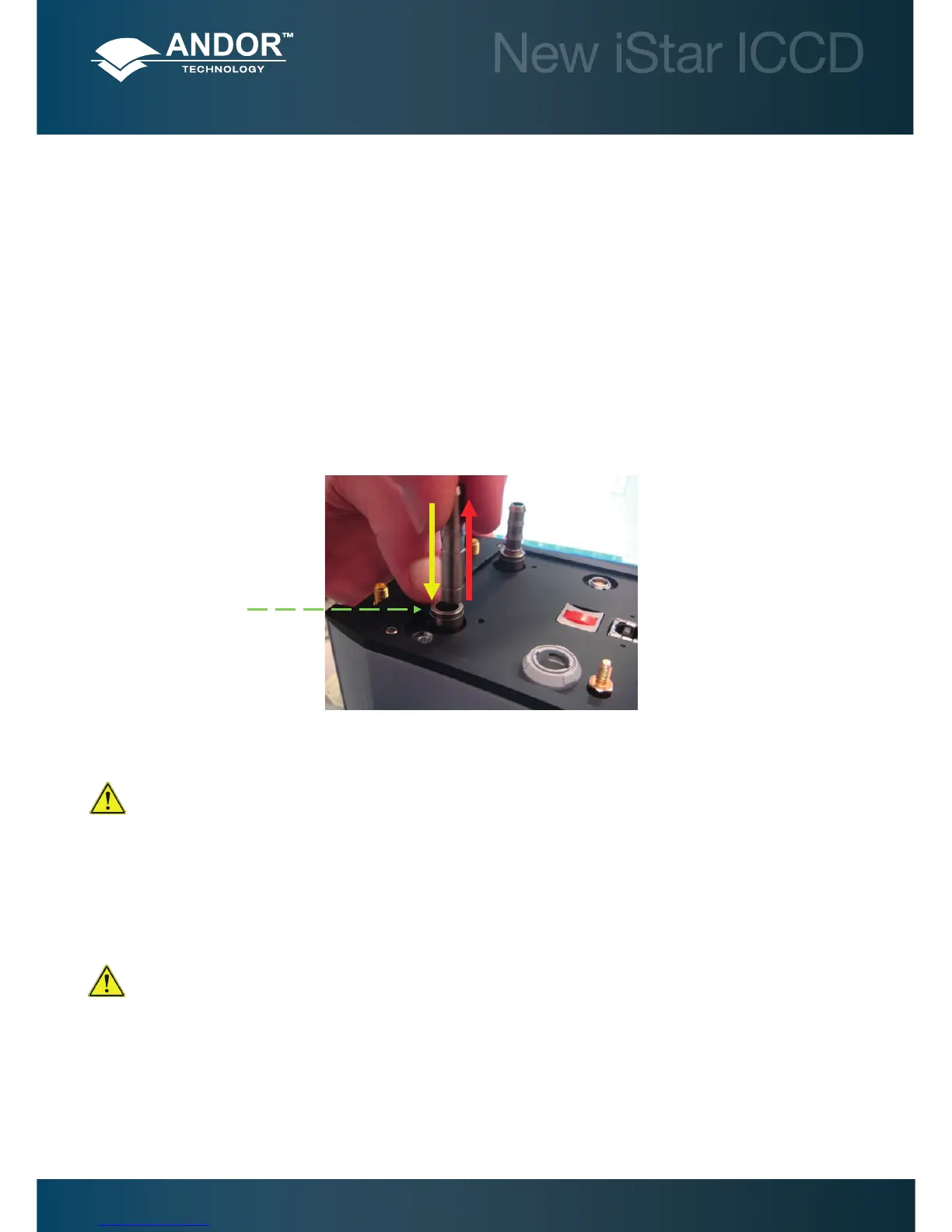Some mains supply water are heavily mineralized, (i.e. “Hard”) which could cause deposits in the water
circuit inside the camera. This can reduce the ow-rate and affect the cooling preformance. It is therefore
recommended to use de-ionized water (without additives) as the coolant.
The specied cooling performance of the camera can be achieved with coolant ow rates of 0.75 litres per
minute, and the maximum recommended pressure of coolant circulating through the camera head is 2 bar.
In the event that replacement hose inserts / barbs are required, the local Andor representative should be contacted.
Important note: The temperature of liquid coolant circulated through the camera head should always be
above the dew point. Use of coolant at or below the dew point will result in permanent damage to the
camera head, due to formation of condensation on internal components. Section 2.8.5 provides further
details on this point.
3.2 - COOLANT HOSE INSERTS
Two barbed coolant hose inserts are supplied as standard with the New iStar camera, suitable for connection to 6 mm
(0.25”) internal diameter soft PVC tubing / hose. The recommended tubing should have 10 mm (0.4”) outside diameter,
i.e. a wall thickness of 2 mm (0.08”). Alternative hose dimensions and materials should be thoroughly tested to ensure
a leak tight seal is achieved with the barbed inserts. Once the hose has been secured to the barb, connection to the
camera is achieved by clicking hose inserts into the quick-release couplings on the rear of the camera head.
Before attempting to remove the hose connection, user should ensure that all water has been drained from the hoses
and integral coolant channel within the camera head. Care must be taken to avoid permanent damage to the camera
system resulting from either leakage of coolant during connection / removal of hoses or spillage of any residual coolant
contained within the camera head once the hoses have been removed.
Removal of the coolant hoses is achieved by slightly pulling the barbed connector, whilst at the same time depressing
the collar on the quick-release couplings, which releases the hose insert as shown below:
Figure 8: Removal of coolant hose inserts from quick release couplings on camera head
